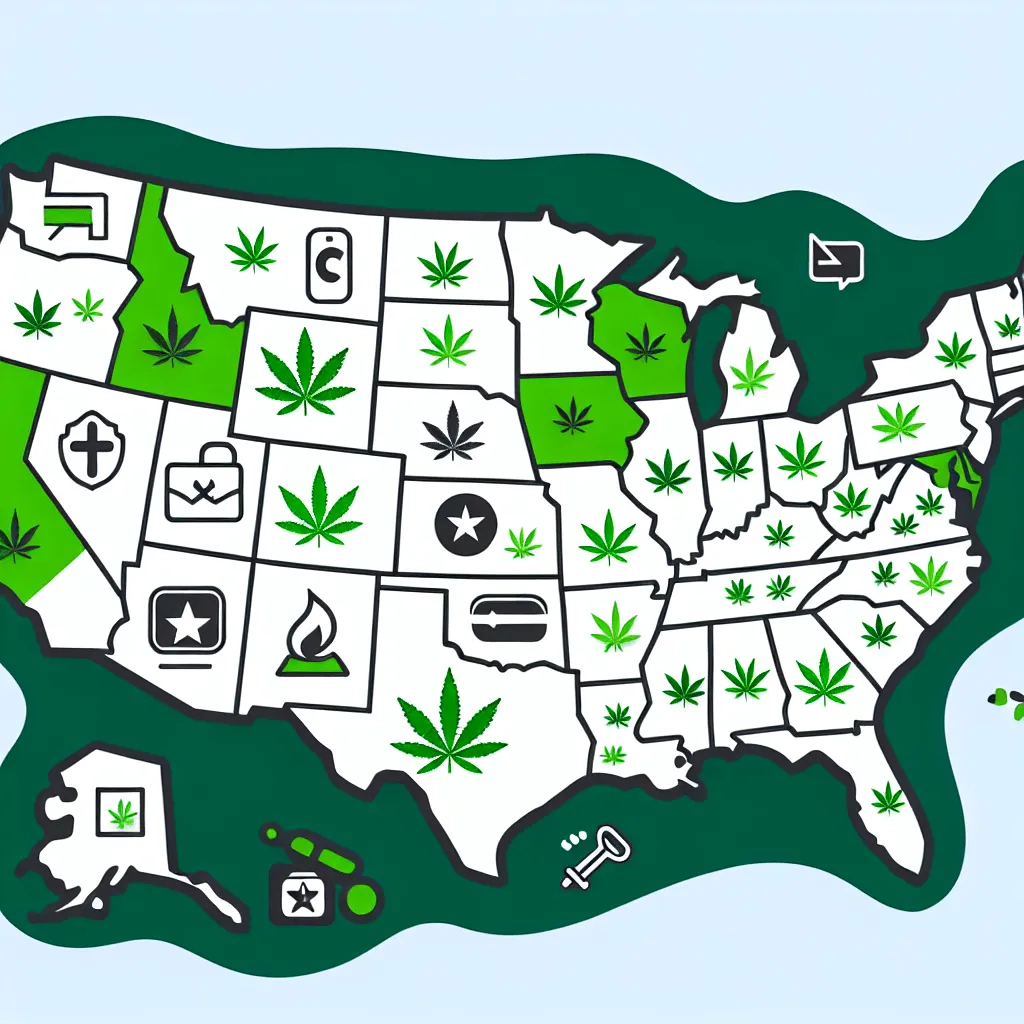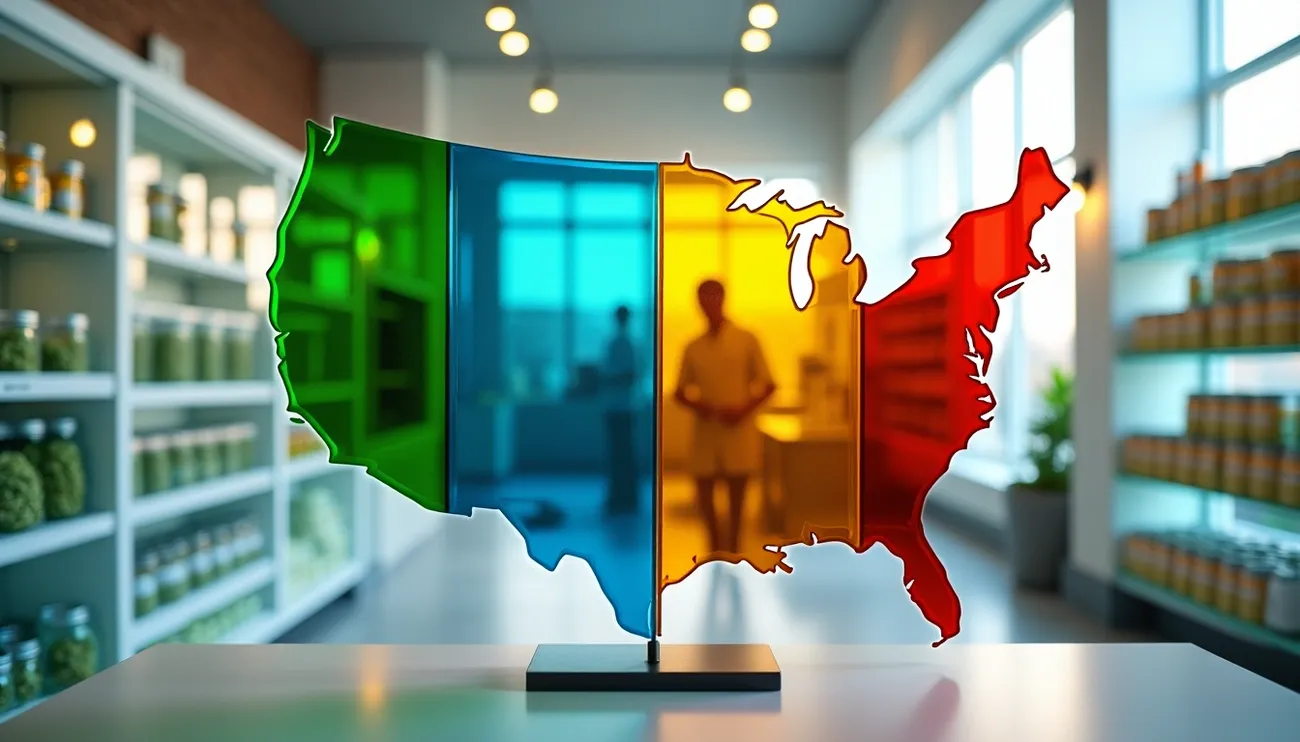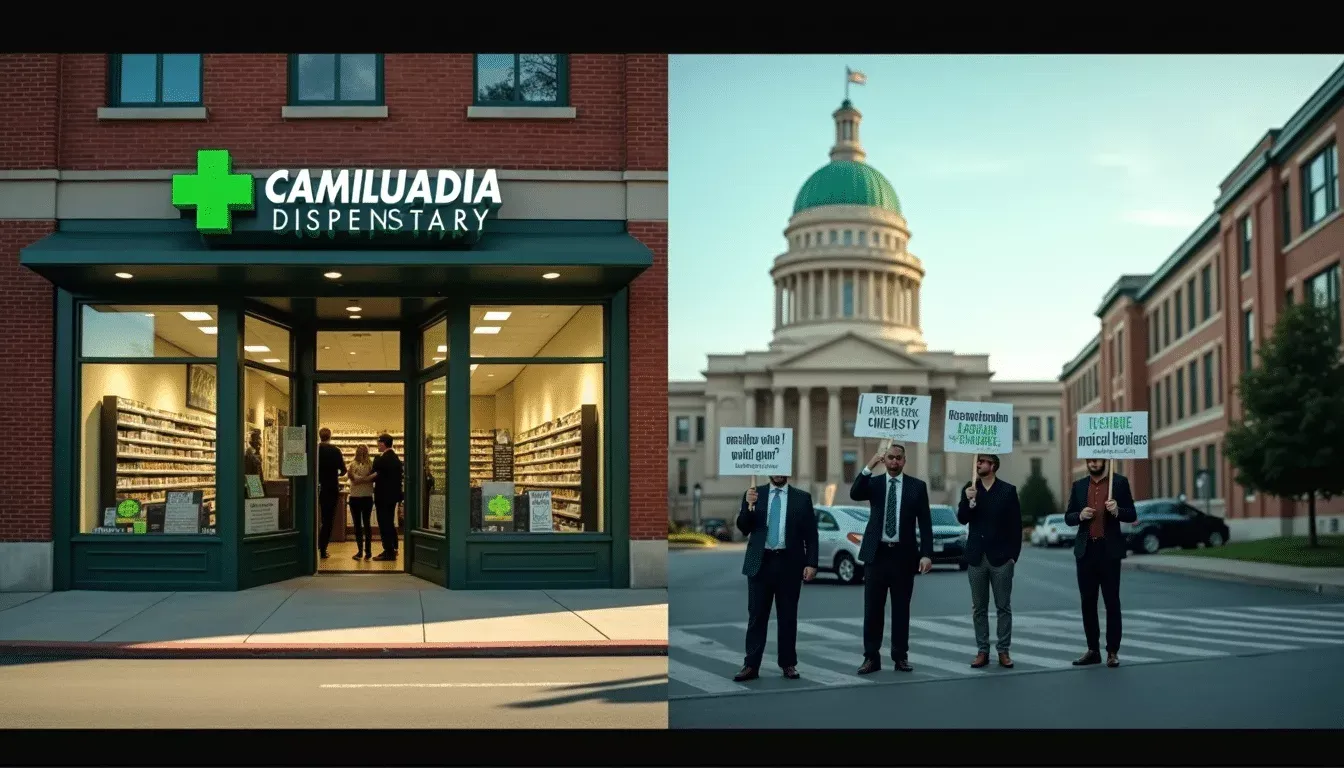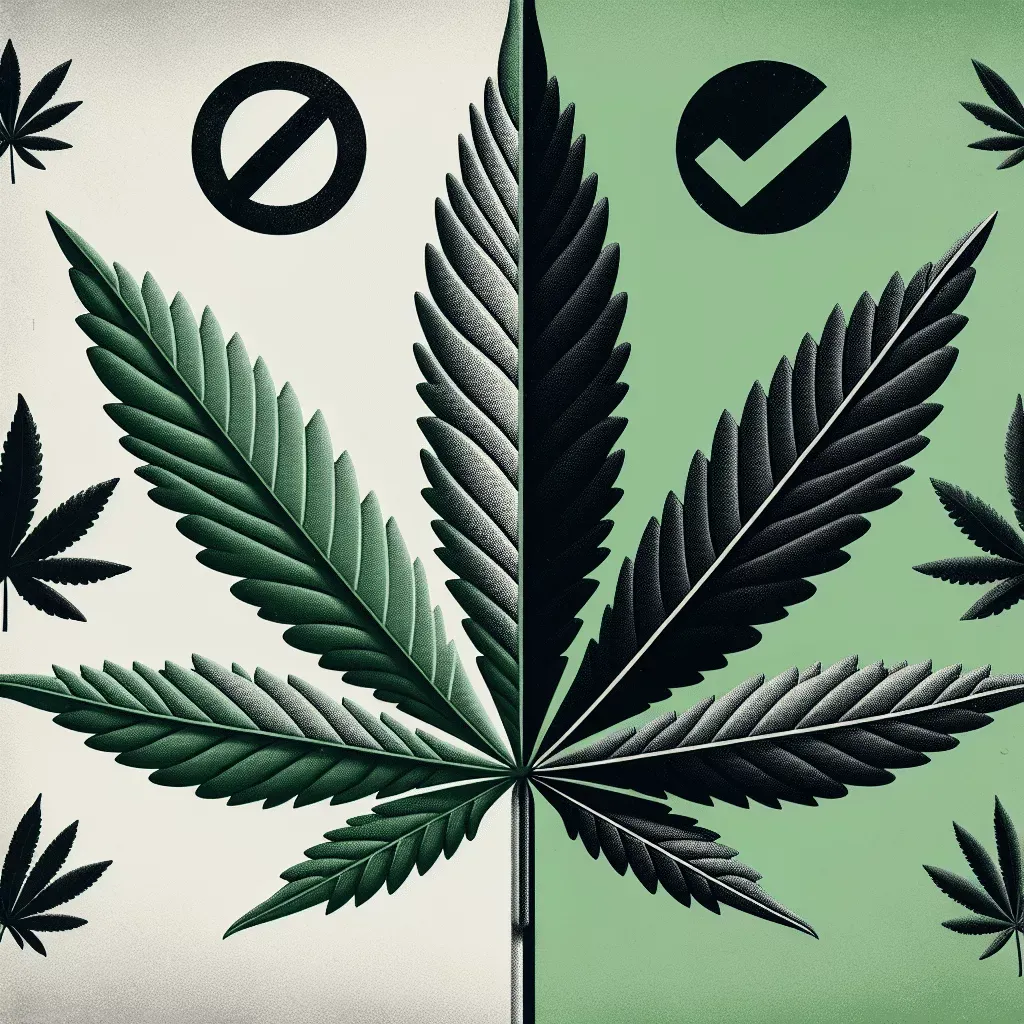Understanding Cannabis Laws in the USA
The landscape of cannabis laws in the United States is as diverse as the nation itself. With each state having the autonomy to set its own regulations regarding cannabis use, what is legal in one state could be a criminal offense in another. Understanding these laws is crucial not only for residents and businesses but also for travelers who might inadvertently cross state lines with cannabis products. This article will delve into the complexity of cannabis legislation across the country, explore the benefits and risks associated with current laws, and provide actionable insights to help readers stay informed and compliant.
Unpacking Cannabis Laws in the USA
Cannabis laws in the USA are governed at both the state and federal levels, creating a patchwork quilt of legislation. Federally, cannabis remains classified as a Schedule I controlled substance under the Controlled Substances Act, making its possession, distribution, and use illegal. However, states have taken varied approaches in response to this federal legislation, leading to a spectrum of legal statuses ranging from completely illegal to fully legalized for recreational use.
As of 2023, 23 states have legalized recreational cannabis, with varying conditions and restrictions. Meanwhile, 38 states allow its use for medical purposes, albeit under strict regulatory frameworks. This divergence creates unique challenges and opportunities for stakeholders nationwide. Understanding this complex matrix is vital to ensuring compliance and avoiding potential legal pitfalls.
Benefits and Risks of Varied Cannabis Laws
Benefits: The shift towards legalization, particularly for medical purposes, has provided significant benefits. It has opened avenues for research into cannabis’ potential therapeutic uses, such as pain management, mental health treatment, and alleviation of chronic conditions. Economically, states that have legalized cannabis have seen substantial fiscal benefits through taxation and job creation. Colorado, for instance, reported over $2 billion in state revenue from marijuana sales since 2014.
Risks: However, inconsistent laws can lead to confusion and unintended legal repercussions. For example, transporting cannabis across state lines, even from one legal state to another, remains a federal offense. Moreover, the lack of nationwide standards regarding potency, packaging, and marketing contributes to consumer confusion and safety risks. Public health experts often debate the long-term societal impacts of widespread cannabis access, raising concerns about potential increases in use among adolescents and impaired driving incidents.
Navigating Cannabis Laws Effectively
Staying informed and navigating through cannabis laws requires diligence and awareness of the latest legislation. Here are practical tips to consider:
-
- Stay Updated: Laws are continually evolving, so regularly check credible sources like state government websites or reputable news outlets for updates on cannabis legislation.
-
- Understand Local Regulations: If you’re traveling or plan to move to a different state, familiarize yourself with its cannabis laws to ensure compliance and avoid legal issues.
-
- Consult Professionals: For businesses interested in entering the cannabis market, seeking legal counsel to navigate the complexities of state and local regulations is prudent.
-
- Engage with the Community: Join forums or attend state-sponsored events to engage with others for insights and shared experiences related to cannabis use and regulation.
-
- Utilize Technology: Several apps and online platforms provide detailed maps and up-to-date information on cannabis laws across states, enhancing accessibility and convenience.
Conclusion
The evolving landscape of cannabis laws in the United States reflects changing societal attitudes and presents both challenges and opportunities. While navigating the maze of state-specific laws can be daunting, staying informed and proactive is key to making informed decisions. Whether you’re a consumer, business owner, or simply curious about the legislative landscape, understanding cannabis laws is essential. We encourage readers to explore further resources and to engage in community discussions to stay well-informed and compliant with ever-changing regulations.
If this article has piqued your interest, consider exploring related topics or sharing your thoughts and experiences in the comments below.
FAQ cannabis laws in the USA
The legal landscape surrounding cannabis in the United States is complex and varies significantly from state to state. Here is an FAQ section addressing some of the most relevant questions regarding cannabis laws in the USA:
-
Is cannabis legal at the federal level in the United States?
- No, cannabis remains illegal at the federal level in the United States. It is classified as a Schedule I substance under the Controlled Substances Act, which means it is considered to have a high potential for abuse and no accepted medical use. However, individual states have enacted their own laws regarding the medical and recreational use of cannabis.
-
Which states have legalized recreational cannabis use?
- As of October 2023, a number of states have legalized the recreational use of cannabis. These include, but are not limited to, states like California, Colorado, Washington, Oregon, Illinois, Michigan, and New York. Each state has its own regulations regarding the purchase, possession, and use of cannabis, including age restrictions and limits on the amount one can possess.
-
What is the difference between medical and recreational cannabis laws?
- Medical cannabis laws allow patients with certain qualifying medical conditions to use cannabis for treatment purposes, often with a recommendation from a healthcare provider. Patients typically need to obtain a medical cannabis card. Recreational cannabis laws, on the other hand, permit the use of cannabis by adults (usually 21 and over) without the need for medical justification. The regulations, tax implications, and available products can differ significantly between medical and recreational markets.
-
How are cannabis businesses regulated and taxed?
- Cannabis businesses are subject to a variety of regulations and taxes that differ by state. Regulations may include licensing requirements, security measures, product testing, and marketing restrictions. Cannabis is typically subject to excise taxes, sales taxes, and sometimes local taxes, which can significantly impact the pricing of cannabis products. The tax structure is a crucial component of how states manage and benefit from the legalization of cannabis.
-
Can employers still drug test for cannabis use in states where it is legal?
- Yes, employers can still drug test for cannabis use even in states where it is legal. The legality of cannabis at the state level does not override an employer’s policies or federal drug-free workplace requirements. Some states have implemented laws that protect employees who use cannabis outside working hours, but these protections vary and often depend on whether the use is medical or recreational.
It is essential to stay informed about the specific laws and regulations in your state since cannabis laws are continually evolving across the United States.
Share this content:



